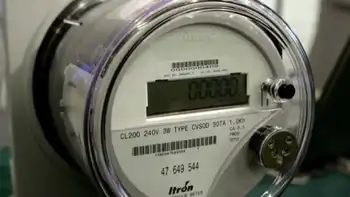Merger might create strong player with complementary technologies
By Canadian Press
Electrical Testing & Commissioning of Power Systems
Our customized live online or in‑person group training can be delivered to your staff at your location.

- Live Online
- 12 hours Instructor-led
- Group Training Available
The FuelCell's all-stock offer announced recently trumped an earlier stock-swap proposed by Quantum Fuel Systems Technologies Worldwide, which had offered shares valued at $108 million in April.
Peter Garrett, Global's chief executive, and Jerry Leitman, FuelCell's chairman and CEO, told analysts in a conference call that the two companies have different technologies that complement each other.
"Overall, we think this combination will produce superior value for our shareholders and, as such, we terminated our agreement with Quantum," Garrett said.
Quantum announced separately it would not attempt to trump FuelCell's offer and would receive a $2-million US breakup fee from Global Thermoelectric.
Leitman said the addition of Global will help FuelCell as it competes against five rivals on the Solid-State Energy Conversion Alliance project, or SECA, a three-phase project partly funded by the U.S. Energy Department.
FuelCell recently won a 10-year, $139-million-US contract as part of the SECA project to develop solid-oxide fuel-cell products, which are still in their infancy and aren't expected to be commercially available for years to come, Leitman said.
At the end of each phase, some of the six competitive bids will be dropped and Global's solid-oxide fuel-cell technology will strengthen FuelCell's technological and financial position in the competition, Leitman said.
The combined company would have a total of more than $200 million US in cash at the time of closing, expected in the fourth quarter of this year, and provide opportunities to cut administrative and other costs, Leitman said.
"We're confident that both sets of shareholders will benefit greatly from a stronger, broader company and the increased stock liquidity," Leitman said.
If the deal goes through, Global's shareholders would own 17 to 20 per cent of FuelCell and have one to two representatives on an enlarged board of directors of the U.S. company.
One analyst expressed concern that the acquisition of Global would divert FuelCell's attention from its primary goal, which is to develop a commercially viable energy sources using carbonate fuel cell technology.
Leitman said the acquisition will allow his company to make a strong bid for the remaining two phases of the SECA project without diverting FuelCell's research team from their own projects, which are closer to commercialization.
"Our products will be out on the market for several years before the SECA-developed products roll out," Leitman said.
In the meantime, the research teams of both companies will be able to share expertise to their mutual benefit, he said.
Pipeline giant Enbridge Inc. had threatened court action after the Quantum bid, out of concern for a $25-million investment it had made in Global Thermoelectric's preferred shares.
Enbridge and Global were able to settle out of court. Leitman said Tuesday his company isn't bound by that agreement but FuelCell hopes to continue to work with Enbridge.
"We would hope to see some mutual benefit with Enbridge as a strategic partner from a distribution standpoint, particularly in the eastern part of Canada where they have a dominant position in natural gas," Leitman said.
Garrett said he's "optimistic that we can work with Enbridge as we move forward" in a strategic relationship.











